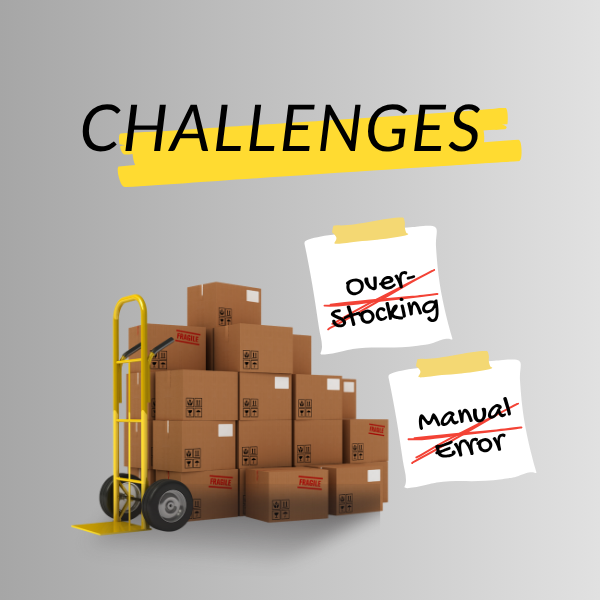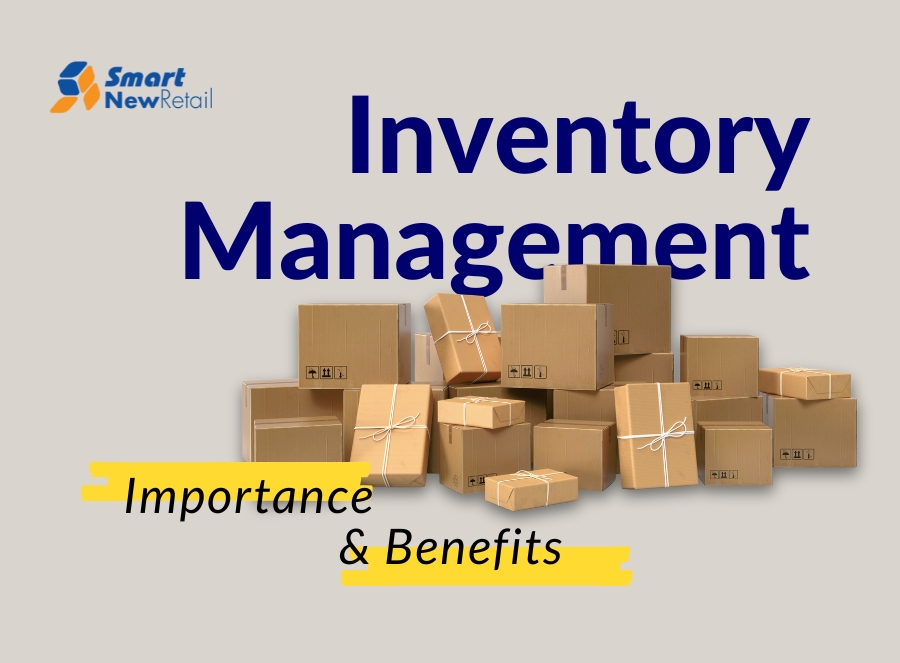Inventory management is essential for all businesses to keep them on the right track. Inventory management assists in monitoring what goes in, out, and remains in storage. It organises everything so nothing ends up being lost or overlooked. With proper coordination, companies align supply with demand, balance expenses, and contribute directly to profitability.
Understanding where products are, how much remains, and when to order more ensures a company's success and saves a significant cost. The process makes companies more concerned with expanding than dealing with stock issues daily. In this blog guide, you will discover what inventory management is, why it is essential, how it operates, and what makes it beneficial for all business types.
What Is Inventory Management?
An inventory management system means keeping an eye on all the products a company uses or offers for sale. It helps organise how businesses bring in items, store them safely, and sell them when needed.
- Tracks every product from start to finish: It shows where each item is and how it moves from one place to another.
- Stops mistakes from happening: It helps avoid having too many products or running out of stock when customers ask for them.
- Keeps the system running: With good planning, there are no long waits or missing items when customers order something.
This process lets businesses handle products with care and attention while making smart choices every day.
Definition and Importance
Inventory management helps companies handle their items wisely. It prevents them from wasting space, losing money, or disappointing customers.
- Matches supply with customer needs: It helps companies buy the right amount of items so customers always get what they want.
- Guides business plans: Companies use inventory information to set budgets, plan sales, and make smart decisions.
- Protects money: It keeps businesses from spending too much or keeping extra items they don't need.
Understanding why inventory management software matters helps companies stay steady, save money, and serve customers better.
Key Aspects of Inventory Management
Inventory is not just stored on a shelf. It moves, gets counted, gets used, and constantly needs attention. These parts make up a complete system.

Tracking and Control
Good tracking makes sure every product is easy to find and count. It prevents mistakes and helps keep order.
- Barcode and label systems track every detail, showing where items go and where they come from.
- Live updates immediately give clear answers, so nothing gets lost or mixed up.
- Daily checks match items in the system with what’s on the shelves, helping avoid confusion or missing pieces.
Clear tracking allows everyone to work faster and fix problems before they grow.
Ordering and Purchasing
Ordering works best when done at the right time, not too early or too late. This part of the system decides when and how much to buy.
- Set reorder points to restock before running out, so customers never wait too long.
- Build smart relationships with suppliers, knowing who delivers on time and who offers fair prices.
- Buy in smart amounts, so shelves don’t overflow but also never stay empty.
Smart buying choices keep business flowing and avoid waste.
Storage and Warehousing
The place where items rest matters. Neat, organised storage saves time and keeps products in good condition.
- Put products in easy-to-reach spots, so workers don’t waste time looking for things.
- Use climate controls when needed, so items stay fresh or damage-free.
- Plan warehouse layout for smooth movement, helping workers move quickly and avoid delays.
Good storage saves space and keeps things running efficiently.
Usage and Consumption
Items don’t just sit around they get used. Watching how fast things move or how people use them is important.
- Track how quickly items leave the shelf, so you know what needs reordering.
- Watch how different teams use supplies, to stop overuse or delays.
- Move items between locations when needed, so no place runs low.
Paying attention to how things get used helps the system stay balanced.
Demand Forecasting
Planning ahead helps avoid surprises. When companies predict what customers want, they stay ready to sell.
- Use past sales to guess future needs, helping avoid guessing and waste.
- Count on seasons, events, and holidays when sales might go up or down.
- Update forecasts often, so plans match what’s really happening.
Forecasting helps keep the right items in stock and avoids the stress of guessing.
Cost Optimization
Saving money is part of good management. Buying wisely and keeping only what’s needed cuts down costs.
- Keep shelves clear of extra items, making more room and saving money.
- Choose the best time and price to buy, getting more for less.
- Move items often, so nothing gets too old or lost in storage.
Controlling costs helps a business grow without wasting money.
Supply Chain Management
Inventory is just one part of a bigger chain. It connects suppliers, warehouses, and customers all in one flow.
- Work closely with suppliers, so deliveries come on time.
- Make each step in the process smooth, so items move without confusion.
- Share updates across the chain, so everyone knows what’s happening.
Keeping the whole chain in sync avoids problems and keeps customers happy.
Benefits of Effective Inventory Management
When done right, inventory management offers strong rewards. It saves money, keeps customers pleased, and helps businesses grow smoothly.

Reduced Costs
Better planning brings down many everyday costs. It keeps money from getting stuck in extra stock or wasted goods.
- Clear out items that take up space, so warehouses don’t get too full.
- Buy only what’s needed, keeping spending smart and simple.
- Use time wisely, letting workers focus on important tasks instead of fixing mistakes.
When inventory runs well, costs drop naturally.
Improved Customer Satisfaction
Customers stay happy when businesses have what they want, on time and without problems.
- Keep items in stock, so no one leaves empty-handed.
- Update systems often, so everyone sees the same product list.
- Deliver items on time, building trust with every order.
Serving customers well starts with managing inventory the right way.
Increased Efficiency
Good systems make everything smoother. They cut down steps and allow more work to get done.
- Follow repeatable routines, so staff don’t waste time figuring things out.
- Use fewer manual tasks, replacing them with smart tools.
- Clear the way for faster product movement, avoiding long waits or messy storage.
Efficiency gives a business the power to do more with less.
Better Profitability
A smart system leads to more money earned and less money lost. That’s how companies grow strong.
- Free up cash tied in extra stock, so the business can invest where it matters.
- Meet customer demand quickly, so every sale counts.
- Avoid losses from old or damaged goods, saving money long-term.
Good inventory choices build solid profits and lasting success.
Data-Driven Decisions
Smart choices come from good information. Inventory software tracks what works and what doesn’t.
- Check numbers before making plans, using data that’s clear and recent.
- Spot sales trends and use them to guide buying decisions.
- Keep track of what’s healthy in stock, so changes improve the system.
Using an inventory management software system makes it easier to decide what to do next.
Common Inventory Management Challenges
Even with a good plan, problems can show up. Knowing what can go wrong helps fix it faster.

Overstocking or Understocking
Having too much or too little causes trouble. Both get in the way of good business.
- Too many items take up space and can cost money.
- Too few items make customers wait, and they may go elsewhere.
- Guessing without data causes problems, leading to waste or missed sales.
Balanced stock keeps things under control.
Poor Visibility Across Channels
Selling in stores and online means systems need to match. Without connection, mistakes happen.
- A mismatch between systems confuses staff, leading to lost sales.
- Customers might order items that aren’t there, causing delays.
- Fixing mistakes takes time, pulling workers away from more useful tasks.
Clear, shared information across all platforms makes operations smoother.
Manual Errors and Lack of Automation
Manual work increases errors, while automation boosts speed and accuracy.
- Mistyped numbers cause mix-ups, wasting time and resources.
- Counting by hand takes too long, slowing down the process.
- Old systems break down often, making it hard to keep up.
Simple tools and automatic updates prevent these problems early.
Conclusion
Inventory management controls a business's products, space, and money. It helps stock move easily from the supplier to the customer without extra steps or problems. With a reliable system, companies stay ahead, spend smarter, and avoid confusion.
A complete inventory management system doesn't just monitor shelves it guides choices, saves time, and helps people do their tasks well. It combines forecasting, ordering, tracking, and selling into one simple, powerful flow. With strong tools and clear planning, businesses grow faster, serve better, and stay more organised. Building this system means creating a smooth path for every product and every sale.
